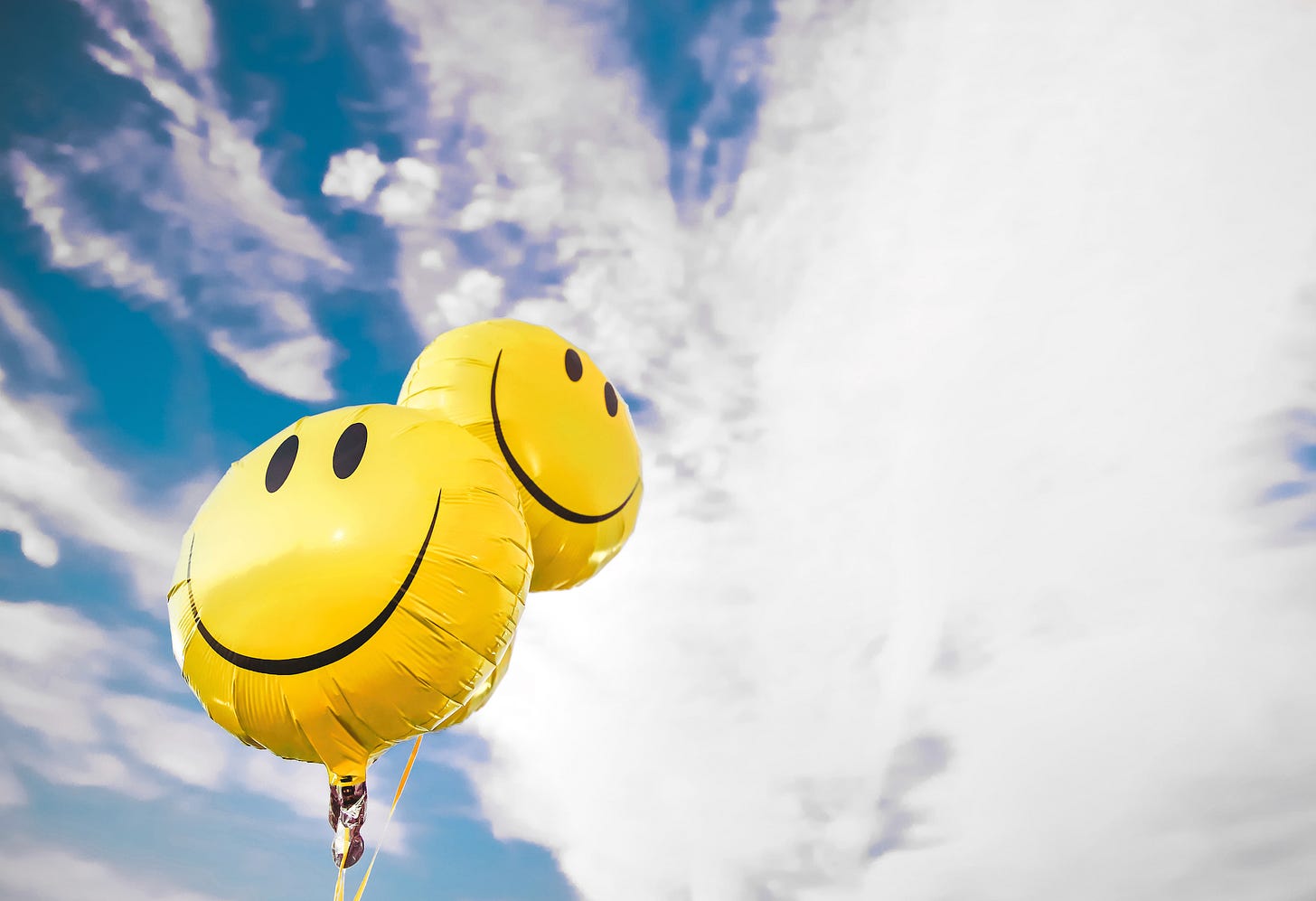Optimism, The Last Taboo
Only in America can positivity be thoughtcrime.
I clicked an advertorial by mistake this morning. It all makes sense now:
Friendship is meant to be a safe space—where we feel seen, supported, and accepted. But what happens when that support starts to feel a little… performative? When every vent session is met with “Look on the bright side!” or “At least it’s not worse!”—instead of real empathy?
That’s where toxic positivity comes in… the belief that no matter how difficult a situation is, people should maintain a positive mindset. While optimism has its benefits, constant insistence on “looking on the bright side” can invalidate genuine emotional experiences…
I laughed, but it turns out there’s a whole literature of “toxic positivity.” The Los Angeles Times after winter wildfires warned against “the dark side of brightsiding,” Fast Company offered instruction on “How to Stay Optimistic But Avoid Toxic Positivity,” and Health hinted that needle needs threading because excess upbeatitude might be a cancelable offense. An anonymous employee at Wayfarer Studios took actor/director Justin Baldoni to task in the Los Angeles Times, knocking his workplace demeanor: “It was constant positivity all the time. I would say toxic positivity.”
If you’re like me and feel more alienated from American society every day, this might be the reason. In a world where nothing is just a problem, everyone is Hitler, and the dumbest controversies are framed as ultimate showdowns of Good and Evil, optimism makes sense as the last taboo:


